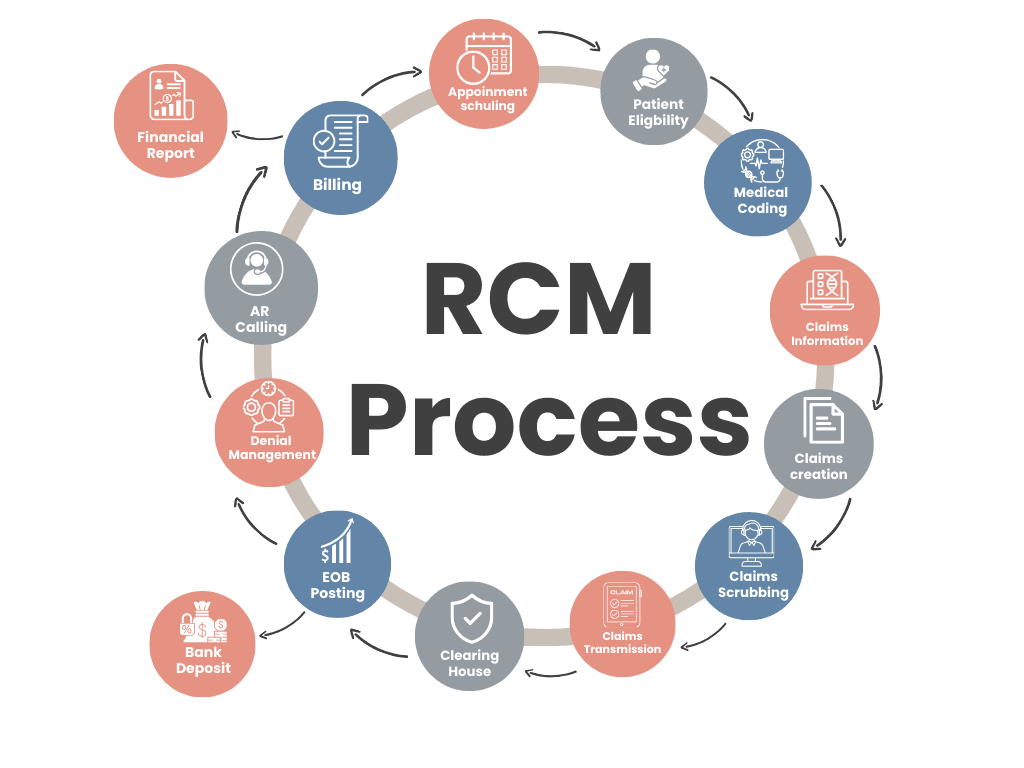Whether operating solo or as part of a team, organizations must handle various tasks simultaneously—from patient care to financial oversight. Innologiic RCM enables organizations to assess and enhance the dependability of their revenue cycle management (RCM). Through this, necessary safeguards can be introduced, preserving the organization’s revenue integrity and minimizing losses due to reclamations, interest, fines, and penalties.
Our Virtual Assistants leverage advanced AI technology to streamline administrative tasks, allowing healthcare professionals to focus on patient care.

Commitment to innovation ensures that your practice remains at the forefront of healthcare technology.
Revenue cycle management is the medical billing procedure that navigates the reimbursement process for the services rendered to the patient, from an individual’s initial service to the receipt of payment for each service. However, it involves more than just claim submissions; RCM costs can vary with adequate staffing and efficient systems. Inadequate billing and lack of attentive resolution can result in revenue loss.
The goal of the revenue cycle management process is to identify any points of friction in the provider’s revenue cycle and resolve them. With proper healthcare revenue cycle management, providers can maximize their claim reimbursements and increase their patient service revenue.
Revenue Cycle Management (RCM) refers to the financial process healthcare facilities use to track patient care episodes from registration and appointment scheduling to the final payment of a balance. It involves managing claims processing, payment, and revenue generation, ensuring that healthcare providers get reimbursed for the services they deliver.

Frequently asked questions (FAQs) related to Revenue Cycle Management
Revenue Cycle Management is the process of managing the financial aspects of a healthcare facility, including billing, claims processing, and revenue generation.
Effective RCM helps healthcare providers maximize revenue, reduce billing errors, and improve cash flow.
RCM services typically include patient registration, insurance verification, charge capture, claims submission, payment posting, and accounts receivable management.
By streamlining billing processes, reducing denials, and ensuring timely payments, RCM can significantly enhance a practice's financial performance.
RCM often utilizes specialized software for billing, coding, and data analytics to optimize the revenue cycle.
Our team analyzes denied claims to identify the reasons for denial and implements strategies to appeal and resolve them efficiently.
Common challenges include managing claim denials, maintaining compliance with regulations, and ensuring accurate coding.
Key performance indicators (KPIs) such as days in accounts receivable, claim denial rates, and collection rates can help assess RCM effectiveness.
Accurate coding is crucial for proper billing and reimbursement, as it ensures that services provided are correctly documented and billed.
Yes, many healthcare providers choose to outsource RCM to specialized firms to improve efficiency and focus on patient care.